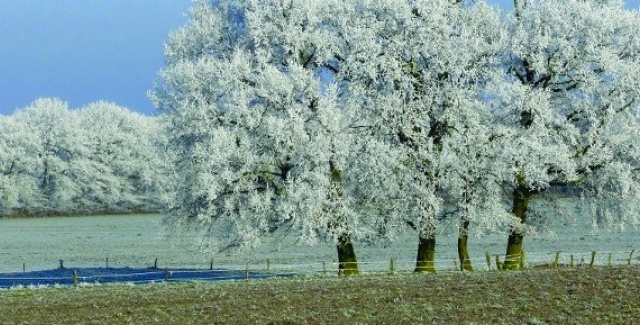Know what to do when the temperature drops to below freezing.
Extreme temperature drops are not uncommon in the Mid-South, but thankfully most all are predicted in advance. When the temperature falls below freezing, be sure you’re prepared to keep you and your family warm and safe, by following these preparedness tips.
Five simple steps:
- Stay inside during extreme cold temperatures and have plenty of extra blankets and layers of clothing.
- If working outside, wear several layers of loose fitting, lightweight warm clothing rather than one layer of heavy clothing. Wear mittens, which are warmer than gloves, and a hat. And cover your mouth with a scarf to protect your lungs
- Make sure that your car’s heater and defroster are in good working order, and always keep the gas tank near full to prevent ice in the tank and fuel lines.
- Protect outside spigots from freezing by using covers or by turning off the water source; drip all inside faucets and open cabinet doors to circulate heat.
- NEVER run a generator out of garage or in the house.
Other steps:
- Check over your home before winter arrives. Make sure the attic is well ventilated and that the attic floor is well insulated.
- Check over all exposed pipes (in the attic or basement) and insulate if necessary. Seal cracks and holes in outside walls and foundations near water pipes with appropriate caulking.
- If you plan to use a fireplace or wood stove for emergency heating, have your chimney or flue inspected each year. Also, if you plan to use a fireplace, wood stove or kerosene heater, install a smoke detector and a battery-powered carbon monoxide detector near the area to be heated. Test them monthly.
- If you are planning on using a gas-powered generator, check your fuel supply. NEVER run a generator out of garage or in the house.
- Make sure your vehicle has adequate antifreeze.
- If you know of a neighbor, friend or relative who is housebound or elderly, make a plan to check on them. The ability to feel a change in temperature decreases with age, and the elderly are more susceptible to health problems caused by the cold.
- Bring all outdoor pets inside or to a warmer area, and be sure to provide pets with plenty of fresh, unfrozen drinking water.
Understanding hypothermia:
When exposed to cold temperatures, your body begins to lose heat faster than it can be produced. Prolonged exposure to cold will eventually use up your body’s stored energy. The result is hypothermia, or abnormally low body temperature. Body temperature that is too low affects the brain, making you unable to think clearly or move well. This makes hypothermia particularly dangerous because a person may not know it is happening and won’t be able to do anything about it.
Hypothermia is most likely at very cold temperatures, but it can occur even at cool temperatures (above 40°F) if a person becomes chilled from rain, sweat, or submersion in cold water.
Know that the elderly with inadequate food, clothing or heating; babies sleeping in cold bedrooms; people who remain outdoors for long periods (such as the homeless, hunters, etc.); and people who drink excessive amounts of alcohol or use illicit drugs are more likely to experience hypothermia.






